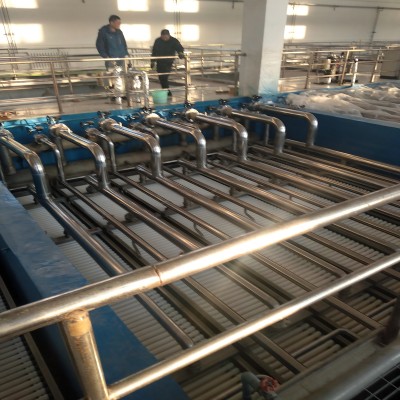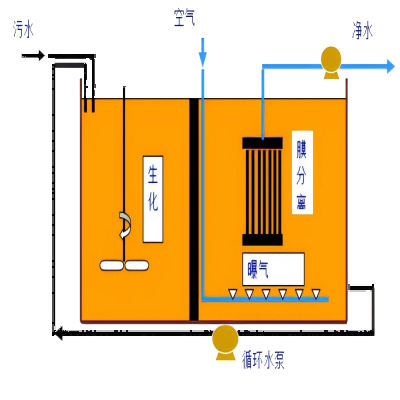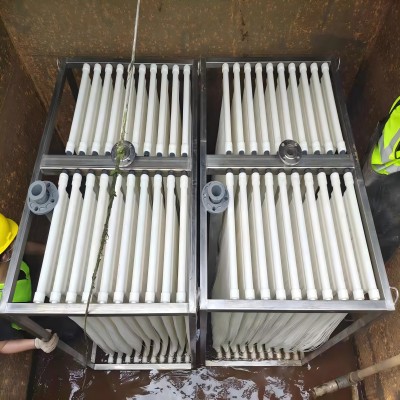Scientific Principles and Optimization of Hollow Fiber Membrane MBR Technology
November 15, 2024
Hollow fiber membrane bioreactors (MBR) have gained widespread attention in modern wastewater treatment due to their exceptional processing efficiency. This blog will delve into the scientific principles, influencing factors, and optimization methods of the hollow fiber membrane MBR system.



Hollow fiber membranes consist of polymer materials formed into hollow tubes, typically 200-300 microns in diameter with wall thicknesses of 50-100 microns. The pore size ranges from 0.01 to 0.1 microns. Common materials include:
- Polyvinylidene fluoride (PVDF): Offers excellent chemical resistance and mechanical strength.
- Polyacrylonitrile (PAN): Known for its superior anti-fouling properties.
2. Working Mechanism and Filtration Process
In pvdf MBR systems, wastewater is mixed with activated sludge and undergoes biological degradation through aeration. The hollow fiber membrane acts as a barrier for solid-liquid separation. On the membrane surface, a concentration polarization layer forms. Under appropriate pressure, water and small solutes permeate through the membrane, while particulates and bacteria are retained.
Key parameters of the filtration process:
- Transmembrane Pressure (TMP): A critical factor affecting permeate flux; excessive TMP can accelerate membrane fouling.
- Membrane Flux: The volumetric flow rate through the membrane per unit area, typically measured in L/m²·h.
- Sludge Concentration: Impacts fouling rates and effluent quality and needs to be maintained within an optimal range.
3. Common Fouling Issues and Mitigation Strategies
Membrane fouling poses a significant challenge for hollow fiber MBR systems. Types of fouling include:
- Biological Fouling: Caused by microbial growth, mitigated through periodic chemical cleaning and biocide control.
- Organic Fouling: Accumulation of dissolved organic matter, which can be managed with pre-treatment and membrane cleaning.
- Inorganic Scaling: Resulting from precipitated salts like calcium and magnesium, removable by acidic solutions.
Optimization Measures:
- Aeration Optimization: Adjusting the air-to-water ratio and aeration pattern to reduce sludge build-up on the membrane surface.
- Periodic Backwashing: Using reverse flow to clean the membrane and alleviate fouling.





 Language
Language






 Network Supported
Network Supported